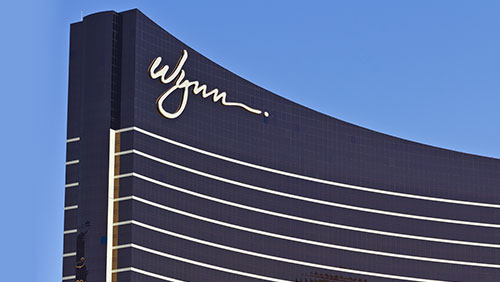 Wynn Resorts seems to be holding its own, despite the multimillion-dollar fiasco caused by its founder and former CEO Steve Wynn. The company’s revenue has maintained relative strength and looks to be staging a comeback. However, Deutsche Bank Securities Inc. (DBS) has lowered its second-quarter expectations for the company, but not for any reasons related to Wynn’s sexual allegations scandal and the subsequent fallout.
Wynn Resorts seems to be holding its own, despite the multimillion-dollar fiasco caused by its founder and former CEO Steve Wynn. The company’s revenue has maintained relative strength and looks to be staging a comeback. However, Deutsche Bank Securities Inc. (DBS) has lowered its second-quarter expectations for the company, but not for any reasons related to Wynn’s sexual allegations scandal and the subsequent fallout.
DBS lowered its forecast due to weakened VIP gaming performance in Macau where Wynn Resorts has a significant presence with Wynn Palace and Wynn Macau. Although the forecast was lowered, DBS analysts commented yesterday that the company is still “a compelling medium- and longer-term story.”
Pre-EBITDA (earnings before interest, taxation, depreciation and amortization) forecasted earnings for the second-quarter are now at around $17 million, down 4% from previous forecasts. Danny Valoy and Carlo Santarelli, the DBS analysts who presented the forecast, said, “Relative to consensus, our second-quarter property level forecast (US$522 million) is approximately 3 percent below Consensus Metrix consensus (US$537 million) as our Macau property-level estimate is approximately 4 percent below consensus.”
The June VIP action in Macau could continue to soften. Junkets in the area are busy arranging trips for their customers to travel to Russia for the 2018 FIFA World Cup, instead of to Macau. However, the analysts pointed out that this would have “nothing more than a transitory impact.”
Although there might be a temporary softening, DBS reiterated the buy status previously announced for the casino operator. “Our view is predicated upon continued Macau share gains, higher end Macau market gross gaming revenue (GGR) strength in both the VIP and premium mass segments, strong positioning in Las Vegas where high end trends remain sound,” said the analysts.
DBS expects a bright future for Wynn Resorts based on its Las Vegas expansion, the casino project in Boston Harbor and a “considerable free cash flow optionality stemming from an under-levered Macau balance sheet.” The analysts concluded their note by saying, “Further, we would note that third quarter comparisons should benefit from easy comparisons stemming from the third quarter 2017 impact in Macau from Typhoon Hato (we estimated a US$10-12 million property EBITDA drag) and elevated corporate expense (relief effort donations).”